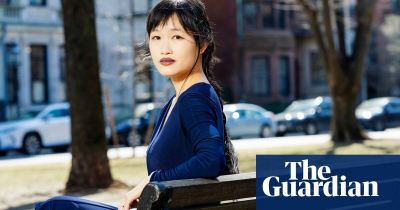The Guardian - China-Science fiction awards held in China under fire for excluding authors
January 24, 2024 5 min 896 words
这则报道揭示了中国主办的2023年雨果奖在提名中排除多位作者的问题,引发了对干预和审查的关切。排除了包括RF Kuang的畅销书《巴别》在内的作品,但却没有给出明确原因。有人担忧这是政治原因,与中共对国内文化活动的严格控制有关。主办方声称排除是依据规则,但未透露具体细节,引起争议。作家Xiran表示,中国可能对批评持敏感态度。尼尔·盖曼批评中国监禁作家,而他的作品也遭排除。这不仅损害了雨果奖的透明度,也引发了对主办地选定的质疑。这一事件暴露了在中国主持国际性活动时言论自由和文化独立受到威胁的现实,对文学自由和奖项公正提出了严肃的问题。
A prestigious literary award for science fiction, which was hosted in China for the first time, has come under fire for excluding several authors from the 2023 awards, raising concerns about interference or censorship in the awards process.
The New York Times bestseller Babel by RF Kuang, an episode of the Netflix drama The Sandman and the author Xiran Jay Zhao were among the works and authors excluded from the 2023 Hugo awards, which were administered by the World Science Fiction Convention (Worldcon) in Chengdu in October.
Babel, which won fiction book of the year at the British book awards in 2023, is a speculative fiction novel by Kuang, a Chinese-American author also known for her novel Yellowface.
No reason was given for the exclusions, which were only revealed on 20 January when the Hugo awards published the full nomination statistics for last year’s prize. Certain titles were listed as having been given votes, but were marked with an asterisk and the words “not eligible”, with no further details given.
The Hugo awards are the premier accolade for sci-fi and fantasy fiction. They are administered by the World Science Fiction Society, a loose collective of sci-fi fans who vote for their favourite works or authors across more than a dozen categories before the annual conference, Worldcon, which is held in a different city each year. Last year’s event was the first time it had been held in China.
Recently released documents showed that several works or authors – some with links to China – had been excluded from the ballot despite receiving enough nominations to be included on their respective shortlists. The excluded nominees include Kuang and Xiran, authors who were born in China but are now based in the west.
Concerns have been raised that the authors were targeted for political reasons, connected to the fact that the ruling Chinese Communist party exerts a tight control on all cultural events that take place inside its borders.
Dave McCarty, the head of the 2023 Hugo awards jury, wrote on Facebook: “Nobody has ordered me to do anything … There was no communication between the Hugo administration team and the Chinese government in any official manner.”
McCarty did not respond to a request from the Guardian for comment, but shared what he said was the official response from the awards administration team on Facebook: “After reviewing the constitution and the rules we must follow, the administration team determined those works/persons were not eligible.” He declined to elaborate on what the rules were.
“I can only guess to why I was excluded, but it probably has something to do with my critical comments about the Chinese government in the past,” said Xiran. “You would think that as a big, powerful country, China would be graceful about criticisms, but they in fact take it very personally, and doubly so when it’s from Chinese diaspora.”
Kuang debuted as an author with the Poppy War trilogy, an award-winning fantasy series inspired by modern Chinese history that imagines Mao Zedong as a teenage girl.
Episode six of The Sandman, which is based on a comic book written by Neil Gaiman, was excluded from the best dramatic presentation category, despite receiving enough nominations to be on the final ballot. Gaiman has publicly criticised the Chinese authorities for imprisoning writers.
In an Instagram post published on 22 January, Kuang wrote: “I wish to clarify that no reason for Babel’s ineligibility was given to me or my team. I did not decline a nomination, as no nomination was offered … I assume this was a matter of undesirability rather than ineligibility.”
after newsletter promotion
Paul Weimer, a hobbyist sci-fi writer, discovered last week that he was excluded from the best fan writer category, despite receiving enough nominations to be shortlisted. “I had the highest of hopes for Chengdu,” said Weimer, who has been nominated for Hugos in previous years. “I thought it was amazing that a number of Chinese fans had got together to get this bid together.”
The organising committee of Chengdu Worldcon did not respond to requests for comment. Some people in the sci-fi community had raised concerns about the event being hosted in China when Chengdu won the bid to host the event in 2021.
“My Hugo acceptance speeches would have gotten me arrested in China. I have said things on record that are just illegal,” said the writer Jeannette Ng in 2021.
The Worldcon organisers “should have taken our concerns about the awards being held in China seriously from the beginning. We knew something like this was going to happen,” said Xiran.
Writing on Facebook, Gaiman said: “Until now, one of the things that’s always been refreshing about the Hugos has been the transparency and clarity of the process … This is obfuscatory, and without some clarity it means that whatever has gone wrong here is unfixable, or may be unfixable in ways that don’t damage the respect the Hugos have earned over the last 70 years.”

